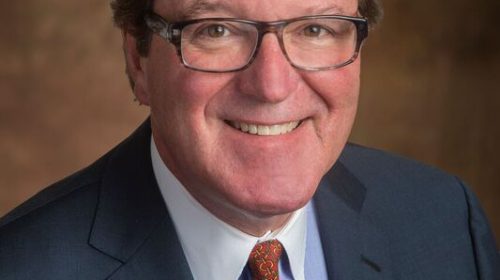By: Pierre G. Villere
My wife and I were traveling recently, and we had made a reservation at a popular restaurant in the town where we were visiting. When we arrived promptly for our reservation time, the hostess politely told us it would be 15 to 20 minutes before we could be seated. We gladly sat at the bar, observing the restaurant and all the comings and goings. But one fact struck me as odd: 25 percent of the tables were empty. So on our way out, I asked the hostess about this and asked about the wait, and she explained what we all know about the current employment picture: They can’t hire enough servers and kitchen staff to maximize the restaurant’s seating capacity.
This is my whole point; the economy is not heading to recession, but rather is reaching a plateau that reflects the strained capacity of businesses to manufacture goods and provide services because we stand at full employment, and at a level we haven’t witnessed in 50 years. But after some extreme volatility in the stock markets over the past several weeks, where the Dow Jones Industrial Average has swung more than 1,000 points in each direction in only a matter of days, the down days prompt calls reminiscent of Chicken Little’s pleas: “The sky is falling.”
Baloney.
All this recession talk just doesn’t add up. Yes, the measure of Gross Domestic Product is slowing, but isn’t that just reflective of full employment, and capacity constraints being felt in every business in America? And yes, the auto industry is slowing, but isn’t that just reflective of years of record new vehicle sales that has put new cars and trucks in almost every garage and driveway in America? Eventually, sales volumes have to adjust until the next trade-in cycle.
The recession talk of recent weeks is driven by news columnists speculating on days when the market gets walloped, and in today’s rapid-fire news world, it goes viral. To be sure, the trade-and-tariff melee in Washington is behind the concerns that drive recession talk, but in a national election year, I am betting that President Donald Trump finds a compromise with China and our Western European allies to calm recession talk ahead of his re-election bid. For example, in a symbolic gesture, Trump decided recently to postpone until December 15 the tariffs on about 60 percent of an additional $300 billion of Chinese imports, granting a reprieve from a planned move that would have extended duties to nearly everything the U.S. buys from China. You can expect more of this trade-war management from the White House if the impasse on trade talks persists and doesn’t yield real progress.
And for now, most economic signs appear solid. Employers are adding jobs at a steady pace, the unemployment rate remains at a 50-year low, and most importantly, consumers are optimistic. Remember, the average consumer spending their paychecks represents 70 percent of our nation’s GDP, and there is no end in sight in consumers’ willingness to spend. Recently released U.S. figures showed retail sales jumped in July by the most in four months, further adding fuel to the notion of strong consumer confidence.
However, if that doesn’t happen, I’ll admit I join others far more qualified than me in suggesting a further slowdown is possible. But a recession? I don’t think so.
In closing, there is a long history of economists predicting slowdowns, and even recessions, after long periods of cyclical expansion, and we have just surpassed the 10-year mark in the current up-cycle. So some wonder if this is the bottom of the eighth inning? But remember, games can go far longer than nine innings; in 1984, the longest game in major league baseball history was a 25-inning affair when the Chicago White Sox beat the Milwaukee Brewers, 7-6. The game lasted 8 hours and 6 minutes.
I’m betting the trade-and-tariff skirmish gets settled, and we go far longer than nine innings, and that the current economic times last well into the early-to-mid 2020s.
Pierre G. Villere serves as president and senior managing partner of Allen-Villere Partners, an investment banking firm with a national practice in the construction materials industry that specializes in mergers & acquisitions. He has a career spanning almost five decades, and volunteers his time to educating the industry as a regular columnist in publications and through presentations at numerous industry events. Contact Pierre via email at [email protected]. Follow him on Twitter – @allenvillere.
